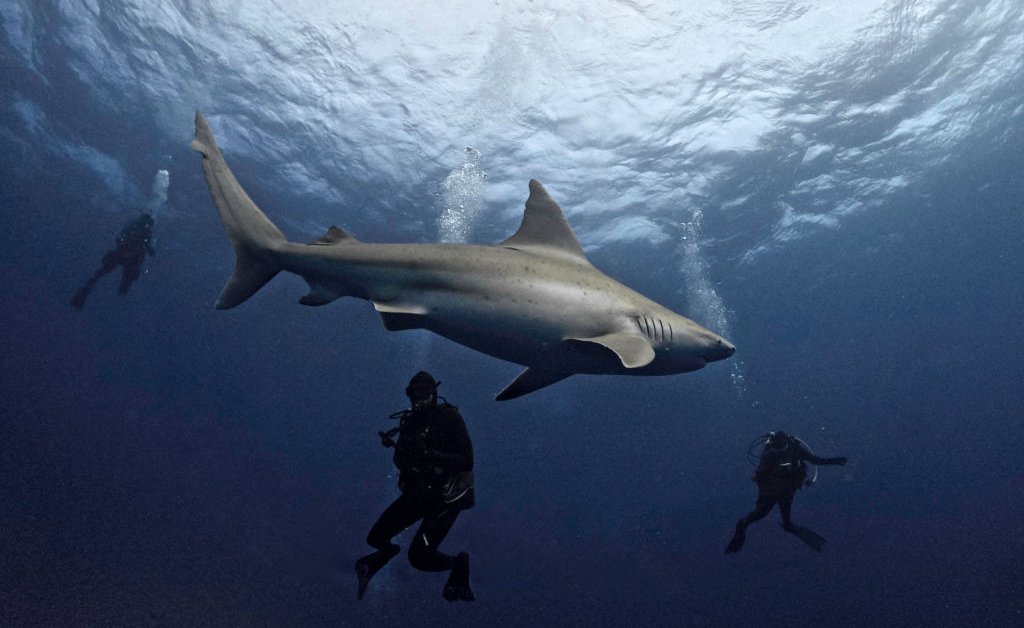Did "Jaws" Harm Shark Conservation? Examining The Film's Legacy

Welcome to your ultimate source for breaking news, trending updates, and in-depth stories from around the world. Whether it's politics, technology, entertainment, sports, or lifestyle, we bring you real-time updates that keep you informed and ahead of the curve.
Our team works tirelessly to ensure you never miss a moment. From the latest developments in global events to the most talked-about topics on social media, our news platform is designed to deliver accurate and timely information, all in one place.
Stay in the know and join thousands of readers who trust us for reliable, up-to-date content. Explore our expertly curated articles and dive deeper into the stories that matter to you. Visit Best Website now and be part of the conversation. Don't miss out on the headlines that shape our world!
Table of Contents
Did "Jaws" Harm Shark Conservation? Examining the Film's Legacy
Steven Spielberg's 1975 blockbuster, Jaws, terrified audiences worldwide with its depiction of a man-eating great white shark. While a cinematic masterpiece, the film's impact on public perception of sharks and subsequent conservation efforts remains a complex and hotly debated topic. Did Jaws, with its chilling portrayal of a predatory beast, inadvertently contribute to the decline of shark populations? Let's dive into the legacy of this iconic movie and explore its lasting effects.
The "Jaws" Effect: Fear and Misinformation
Jaws undoubtedly cemented the great white shark's image in the public consciousness as a ruthless killer. The film's success fueled a wave of shark-related media, often perpetuating harmful stereotypes and exaggerating the danger these animals pose to humans. This media frenzy, sometimes referred to as the "Jaws effect," significantly contributed to the rise of shark culling and a widespread fear of sharks. Many coastal communities, spurred by public panic, initiated aggressive shark hunts, decimating populations already vulnerable to overfishing.
The Rise of Shark Conservation Awareness
Ironically, Jaws' very success also inadvertently paved the way for increased awareness of shark conservation. The film's popularity brought the plight of sharks into the public eye, leading to increased scientific research and ultimately, the beginnings of a global movement to protect these magnificent creatures. Organizations like the Pew Charitable Trusts, dedicated to marine conservation, have highlighted the crucial role sharks play in maintaining healthy ocean ecosystems. Their work, alongside many other conservation initiatives, directly combats the negative legacy of the Jaws effect.
Understanding the Complex Reality: Sharks and Human Safety
It's crucial to understand that shark attacks are exceedingly rare. The chances of being attacked by a shark are statistically far lower than being struck by lightning. The fear generated by Jaws, while understandable given the film's powerful storytelling, is largely disproportionate to the actual risk. This fear, however, has fueled decades of harmful practices, including the finning of sharks – a brutal practice where fins are sliced off, leaving the live shark to die a slow and agonizing death.
From Fear to Fact: The Importance of Accurate Information
The legacy of Jaws underscores the importance of responsible media representation and the dissemination of accurate information about sharks. Educational initiatives, scientific research, and responsible wildlife tourism are vital in fostering a greater understanding and appreciation of these animals. The truth is that sharks are crucial to the health of our oceans. They are apex predators, playing a vital role in maintaining biodiversity and the balance of marine ecosystems.
A Shifting Narrative: Reframing the Great White
While Jaws initially fueled negative perceptions, the subsequent decades have seen a gradual shift in public opinion. Documentaries like have showcased the beauty and importance of sharks, highlighting their role in the ocean's delicate balance. This evolving narrative presents an opportunity to learn from past mistakes and work towards responsible shark conservation.
Conclusion: A Legacy of Both Fear and Awareness
The legacy of Jaws is multifaceted. While the film undeniably fueled a wave of fear and ultimately contributed to the decline of shark populations through irresponsible culling, it also inadvertently sparked a conversation – albeit a belated one – about shark conservation. Today, understanding the impact of Jaws is crucial to fostering responsible interactions with sharks and building a future where these magnificent creatures can thrive. The film serves as a powerful reminder of the responsibility that comes with storytelling and the crucial need for accurate information in shaping public perception and driving effective conservation strategies. We must move beyond the sensationalism of Jaws and embrace a more nuanced understanding of sharks' crucial role in our oceans.

Thank you for visiting our website, your trusted source for the latest updates and in-depth coverage on Did "Jaws" Harm Shark Conservation? Examining The Film's Legacy. We're committed to keeping you informed with timely and accurate information to meet your curiosity and needs.
If you have any questions, suggestions, or feedback, we'd love to hear from you. Your insights are valuable to us and help us improve to serve you better. Feel free to reach out through our contact page.
Don't forget to bookmark our website and check back regularly for the latest headlines and trending topics. See you next time, and thank you for being part of our growing community!
Featured Posts
-
 Suspected Minnesota Legislature Shooter Vance Boelter In Custody
Jun 20, 2025
Suspected Minnesota Legislature Shooter Vance Boelter In Custody
Jun 20, 2025 -
 Collins Two Hit Game Homer And Double Highlight Winning Effort
Jun 20, 2025
Collins Two Hit Game Homer And Double Highlight Winning Effort
Jun 20, 2025 -
 Understanding The Potential Impact Of South Carolinas New Electricity Law
Jun 20, 2025
Understanding The Potential Impact Of South Carolinas New Electricity Law
Jun 20, 2025 -
 Trumps Summer Actions The Impact On Climate Science And Policy
Jun 20, 2025
Trumps Summer Actions The Impact On Climate Science And Policy
Jun 20, 2025 -
 Two Hit Performance For Isaac Collins Homer And Double Highlight
Jun 20, 2025
Two Hit Performance For Isaac Collins Homer And Double Highlight
Jun 20, 2025
